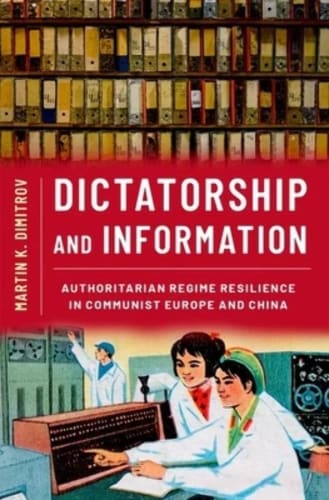
Dictatorship and Information
Authoritarian Regime Resilience in Communist Europe and China
"This study offers a systematic theory of the institutional solutions to the dictator's dilemma, which arises from the incapacity to calibrate repression and concessions due to the lack of information about elite and popular discontent. Empirically, the book presents a detailed discussion of the types of information-gathering institutions created in autocracies, paying particular attention to the difference between standard mechanisms for the retrospective assessment of overt dissatisfaction and the more sophisticated channels for anticipatory evaluations of latent discontent. The book argues that the creation of institutions for the involuntary collection of information is straightforward, but that only certain regimes successfully promote the voluntary provision of information, which is essential for anticipatory governance. In ethnically heterogeneous countries, compactly settled ethnic minorities present a further obstacle for establishing a panoptical authoritarian vision. These problems notwithstanding, communist regimes are especially adept at developing sophisticated systems that mobilize the party, State Security, and internal journalism to assess levels of discontent. Methodologically, the book demonstrates that documents prepared for regime insiders are more likely to shed light on a secret activity like information collection than officially released materials. Theoretically, the book argues that although the dictator's dilemma can be solved and abundant information does extend authoritarian lifespans, information cannot ensure the indefinite survival of dictatorships. The book is based on detailed analysis of the origins and evolution of information-gathering systems in communist Bulgaria (1944-1991) and in China (1949-present), supplemented by eight case studies of information collection in the complete range of authoritarian regimes"--
Dictatorship and Information
Authoritarian Regime Resilience in Communist Europe and China
